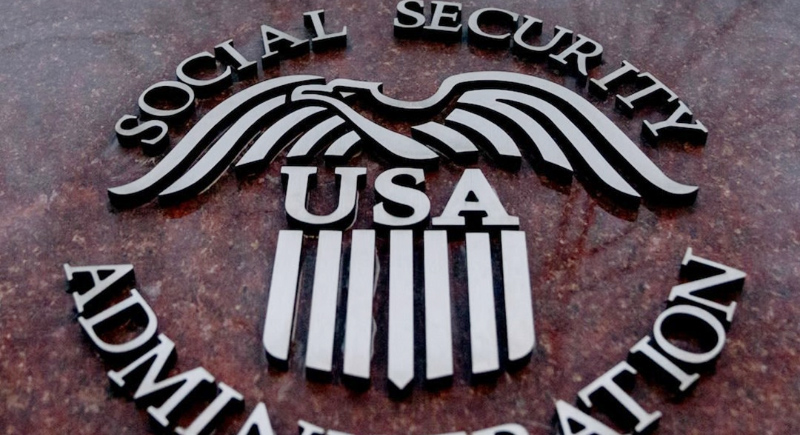Social Security is the backbone of millions of Americans, especially seniors who rely heavily on it. And given recent financial pressures and policy shifts, losing this support is a genuine possibility. This potential collapse could reshape daily life, strain families, and ripple across the economy. Here's a realistic look at the consequences many seniors might face.
Sudden Drop in Monthly Income

Credit: pexels
If Social Security collapses, seniors face an immediate loss of nearly a quarter of their monthly benefits. Their fixed income would be suddenly slashed by 23% while bills, medication costs, and grocery prices would remain constant or increase. Seniors would be forced into survival mode, prioritizing essentials over quality of life.
Rapid Increase in Senior Poverty

Credit: pexels
The potential collapse could drastically elevate poverty rates among seniors, with incomes for the lowest-earning retirees dropping significantly. Those already close to the poverty line would be pushed firmly beneath it and forced into heartbreaking choices between medicine, heating, or nutritious food.
Severe Staffing Cuts at SSA

Credit: Facebook
The Social Security Administration's plans to cut 12% of its workforce, about 7,000 employees, could devastate customer service. As fewer employees juggle increasingly complex demands, seniors can expect far longer wait times for assistance, delays in benefit processing, and potentially increased errors or interruptions in monthly payments.
Growing Dependence on Family Members

Credit: pexels
With Social Security reduced or interrupted, families may have to step up financially by putting younger generations under significant stress. This could compromise their savings, delay retirement planning, and create intergenerational financial strain, affecting overall family stability and economic security.
Potential System Outages

Credit: pexels
Current staff shortages at the SSA could exacerbate vulnerabilities in its outdated computer systems and lead to significant outages. Benefits processing disruptions, lasting days or weeks, could occur and leave seniors temporarily without crucial funds.
Increased Privatization Risks

Credit: pexels
Efforts to privatize parts of the SSA could drastically change how benefits are managed. Private insurance companies typically operate at higher overhead costs than SSA’s current 1.2%. This may raise administrative costs significantly and risk higher fees and lower benefits for seniors relying on streamlined, reliable payments.
Limited Access to Healthcare

Credit: pexels
Reduced Social Security benefits directly translate to less disposable income for healthcare expenses. Seniors might skip essential treatments or medications not fully covered by Medicare, which could lead to deteriorating health, higher emergency care costs, and added financial burdens for themselves and their families.
Rising Housing Insecurity

Credit: pexels
Shrinking incomes could force seniors into precarious housing situations and force them towards downsizing, relocating to more affordable yet possibly unsafe neighborhoods, or even facing eviction. The resultant instability could deeply affect emotional health, community connections, and overall quality of life.
Disproportionate Impact on People of Color

Credit: pexels
A reduction in Social Security would disproportionately affect Black and Hispanic seniors by significantly increasing poverty rates in these communities. The already existing wealth gap would widen further and exacerbate long-standing inequalities in financial security during retirement.
Mental Health Crisis

Credit: pexels
Economic insecurity is strongly linked to mental health deterioration. Anxiety, depression, and a profound sense of vulnerability are expected to become more common among seniors facing severe financial strain, which could subsequently impact their quality of life, relationships, and overall well-being.
Local Economies Hit Hard

Credit: pexels
Reduced senior spending would negatively affect local economies, especially in small towns where retiree dollars heavily support businesses. This could lead to closures, layoffs, and reduced local services. The economic downturns would extend far beyond individual households.
Higher Demand for Public Assistance

Credit: pexels
If Social Security fails, reliance on Medicaid, SNAP, and other welfare programs will surge. Considering that these systems are already underfunded and overstretched, an influx of new applicants could strain resources beyond their limits and affect service quality for everyone dependent on these critical programs.
Extended Workforce Participation

Credit: pexels
Seniors facing financial shortfalls might re-enter the workforce, which would increase job competition, especially in lower-wage sectors. Age discrimination and physical limitations could complicate their ability to earn adequate income and result in prolonged economic hardship and workplace stress.
Mismanagement and Misinformation

Credit: pexels
Current administrative actions, driven by external influence and misinformation—such as exaggerated fraud claims or false narratives of mismanagement—could erode public trust and further destabilize Social Security. Public skepticism might lead to reduced political support needed to address funding shortfalls effectively.
Increased Urgency for Personal Savings

Credit: pexels
With growing uncertainty around future benefit levels, seniors and near-retirees are advised to strengthen personal savings and financial planning immediately. The looming crisis emphasizes the necessity of individual financial preparedness, as relying solely on Social Security becomes increasingly risky.
Widening the Digital Divide

Credit: Getty Images
If Social Security collapses, the digital divide for seniors could widen dramatically. With nearly 22 million older Americans lacking broadband access, many already struggle to navigate online systems for benefits, healthcare, and communication. A sudden loss of disposable income would force more services online, leaving tech-averse seniors isolated and unable to access critical resources without any help, deepening their vulnerability.
Strain on Nonprofits and Food Banks

Credit: iStockphoto
Should a collapse happen, nonprofits and food banks will be overwhelmed. Already strained by federal funding cuts, non-governmental organizations face staffing shortages and reduced services. With more seniors relying on these programs for basic nutrition, demand could outpace supply, leaving many without essential support. The safety net for vulnerable seniors is fraying, and a collapse would exacerbate the crisis.
